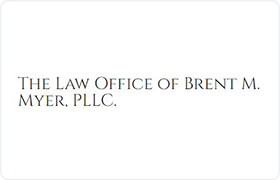Windermere Bankruptcy & Debt Lawyer, Florida
Sponsored Law Firm
-
 x
x

Click For More Info:
-
Law Office of Brent M. Myer, PLLC
27 SE Ocean Blvd Stuart, FL 34994» view mapBankruptcy & Debt Your Local Bankruptcy Attorney
Brent M. Myer has over 15 years of consumer bankruptcy experience and has represented both debtors and creditors in the past.
772-873-7794
Christina Buchan
Bankruptcy & Debt, Foreclosure, Immigration, Family Law, Real Estate
Status: In Good Standing
FREE CONSULTATION
CONTACTStephen Joseph Kolski
Employee Rights, Family Law, Civil Rights, Corporate, Bankruptcy
Status: In Good Standing Licensed: 54 Years
Anass Chakir
Estate Planning, Business & Trade, Bankruptcy
Status: In Good Standing Licensed: 10 Years
Jon Marshall Oden
Litigation, Corporate, Collection, Legal Malpractice
Status: In Good Standing Licensed: 30 Years
Stacey Dawn Wilson
Immigration, Criminal, Bankruptcy, Personal Injury
Status: In Good Standing Licensed: 17 Years
Jeffrey A Sunday
Alimony & Spousal Support, Child Support, Adoption, Collection
Status: Deceased Licensed: 42 Years
Lori D. O'Neill
Commercial Bankruptcy, Commercial Real Estate, Real Estate
Status: Inactive Licensed: 53 Years
 Brent Myer Stuart, FL
Brent Myer Stuart, FL Practice AreasExpertise
Practice AreasExpertise
